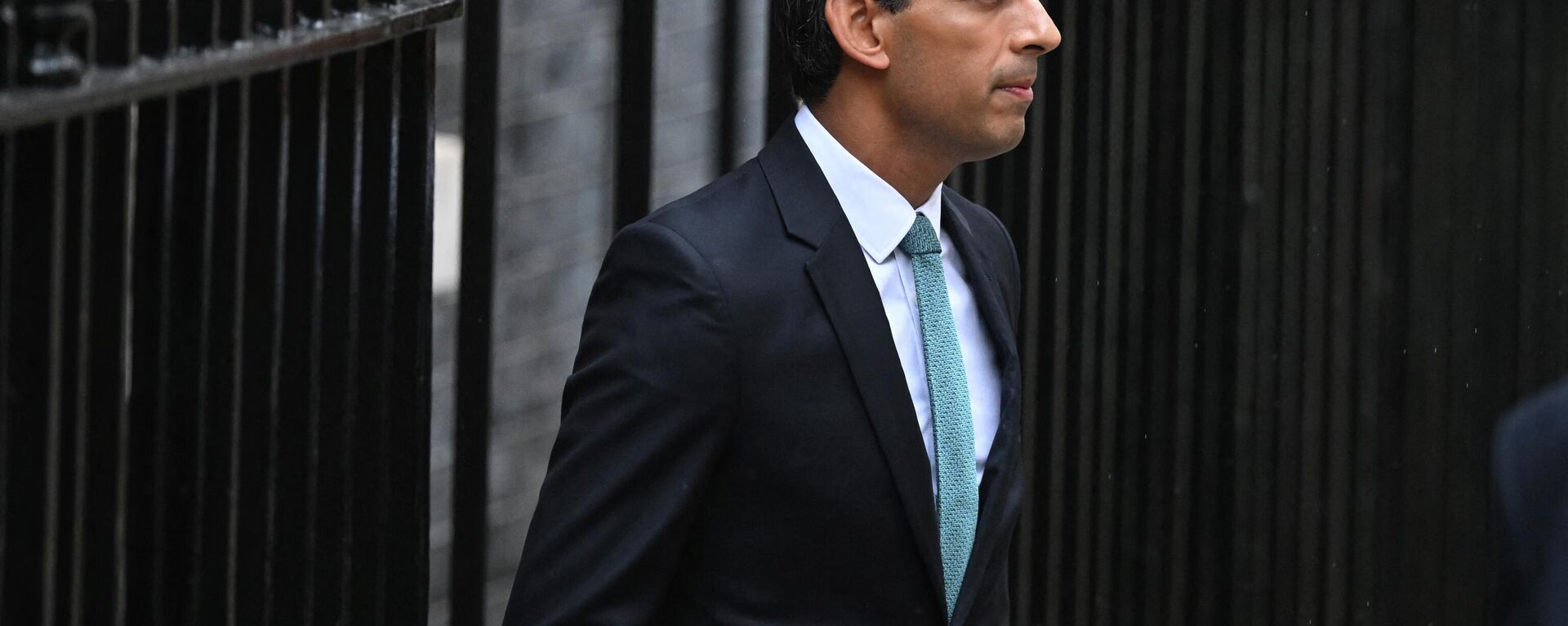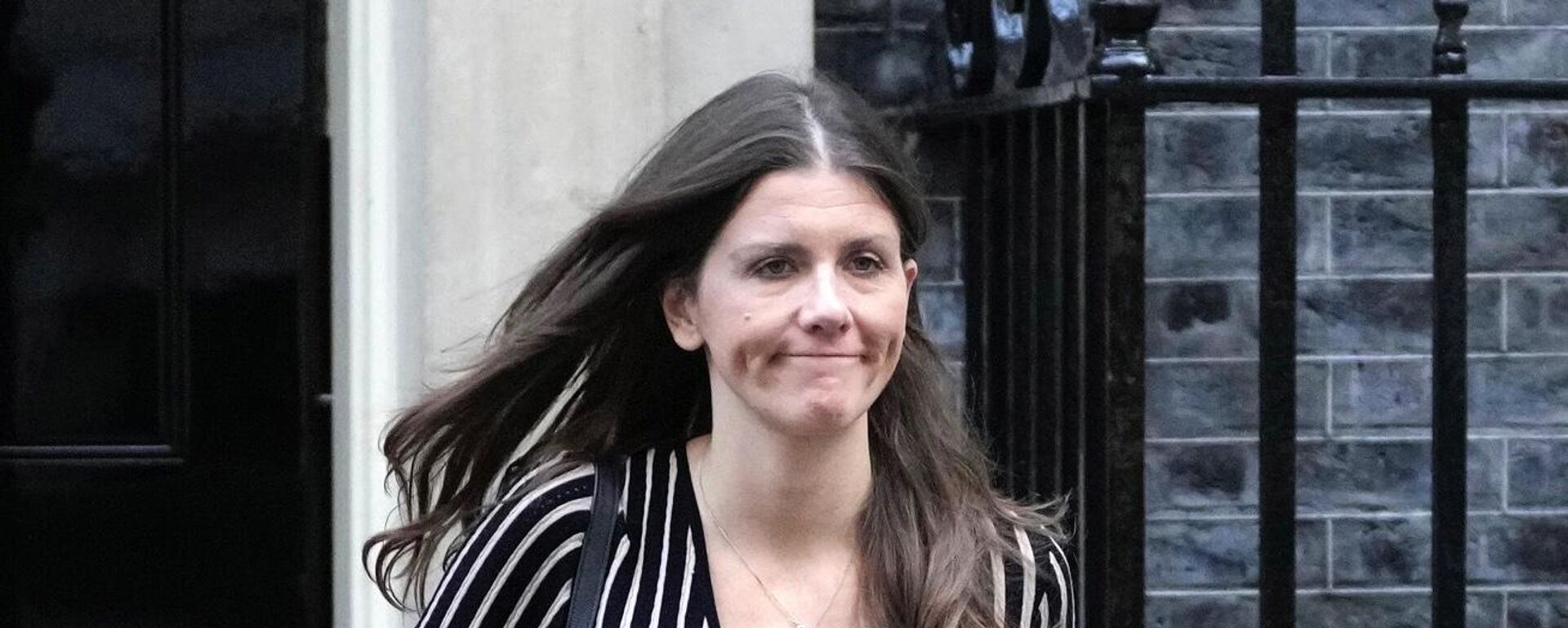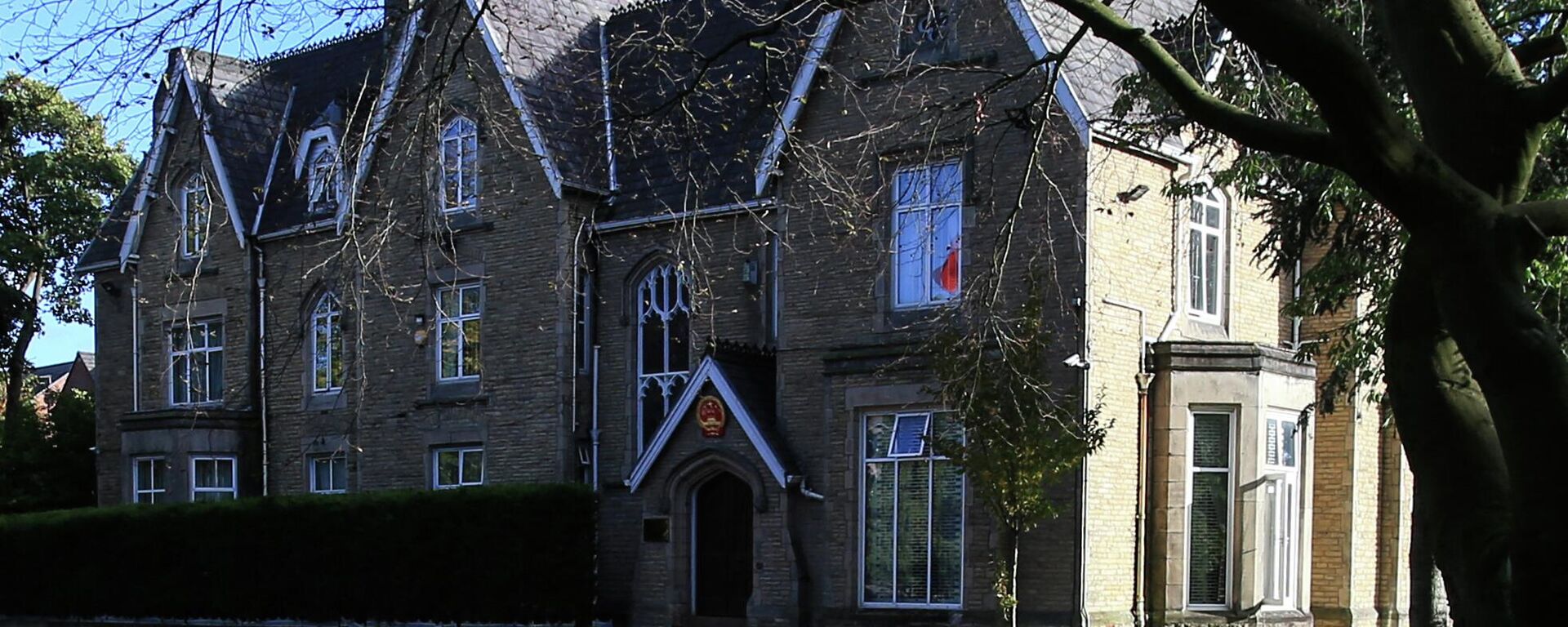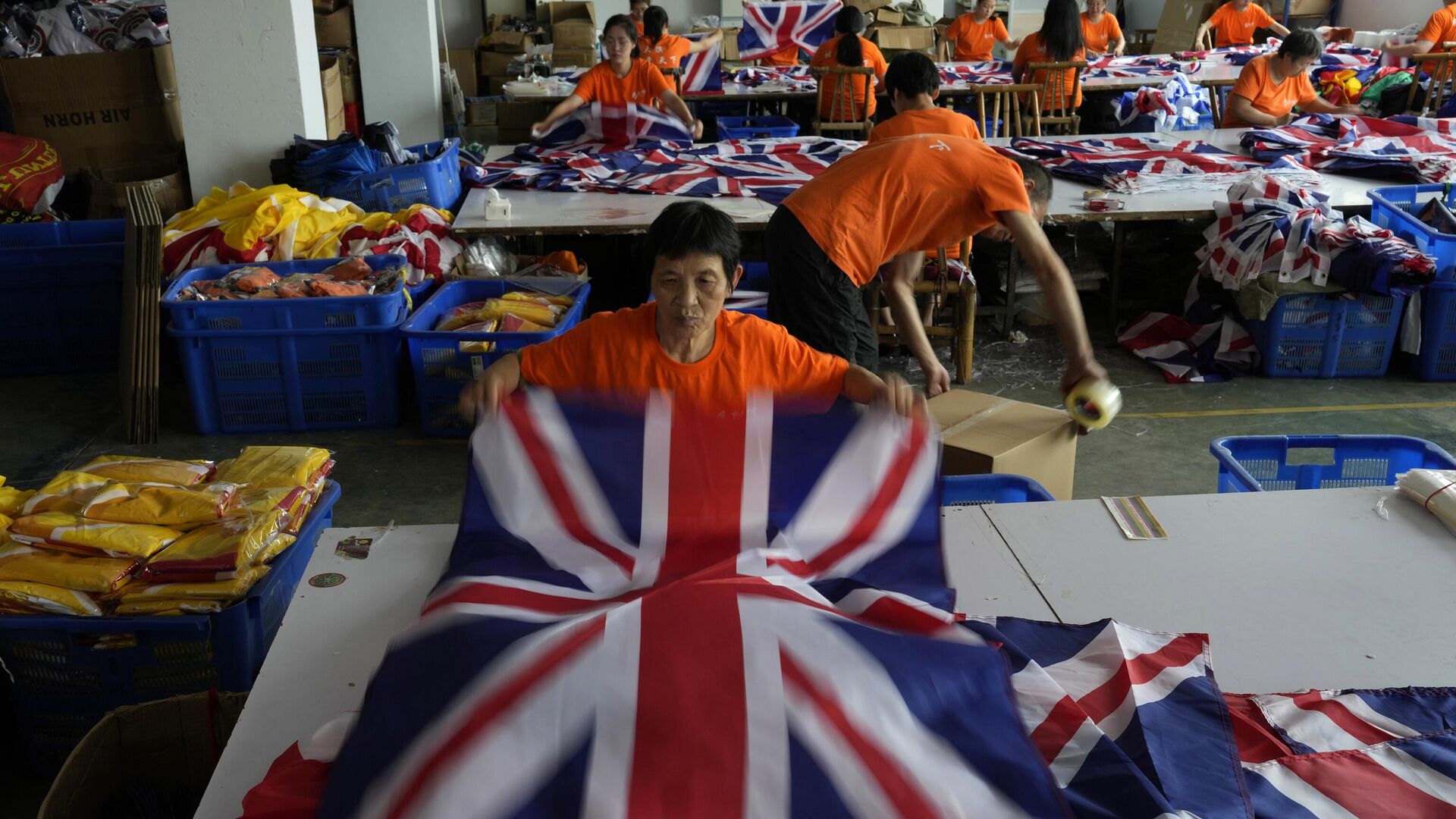https://sputnikglobe.com/20221129/end-of-an-era-looking-back-on-two-decades-of-anglo-chinese-relations-1104823659.html
End of an Era? Looking Back on Two Decades of Anglo-Chinese Relations
End of an Era? Looking Back on Two Decades of Anglo-Chinese Relations
Sputnik International
British Prime Minister Rishi Sunak has said the "golden era" of relations between the UK and China is over — but how close were the two countries to begin... 29.11.2022, Sputnik International
2022-11-29T17:47+0000
2022-11-29T17:47+0000
2023-05-28T15:25+0000
china
rishi sunak
britain
great britain
hu jintao
tony blair
gordon brown
hong kong
world
united kingdom (uk)
https://cdn1.img.sputnikglobe.com/img/07e6/0b/1d/1104825600_0:0:3073:1728_1920x0_80_0_0_766dbed9c958a30f4f7a174e4f1bbfa6.jpg
China and the UK have a long and troubled history which includes the Opium Wars and western colonization in the 19th century.A new nadir was reached during the three-month HMS Amethyst incident in 1949, when the Royal Navy frigate and several other ships were shelled and later held captive by communist People's Liberation Army (PLA) troops fighting Chiang Kai-shek's Kuomintang nationalists.Several visits by British prime ministers and even Queen Elizabeth II followed, including Margaret Thatcher's 1982 trip to negotiate the transfer of sovereignty over Hong Kong to Beijing with leader Deng Xiaoping.The handover of the British colony in 1997 was followed by two decades of warming relations. But now PM Rishi Sunak has said that the "so-called golden era" of détente was "naïve" and it was time for "robust pragmatism" towards the UK's eastern competitor.Speaking at the Lord Mayor of London's banquet, the PM said China had "chosen to crack down further, including by assaulting a BBC journalist."But how close were London and Beijing before Sunak's bellicose speech?Strategic PartnersFormer Chinese president Hu Jintao visited then-PM Tony Blair in Scotland in July 2005 and at Downing Street later that year, a year after the two countries declared a "comprehensive strategic partnership". Hu said at the time that relations between the two nations had "entered a new stage of development."Just weeks later, ailing British car firm MG Rover Group was bought out by China's Nanjing Automobile, which began making new car models under the century-old MG marque two years later.In October 2008 the government of Blair's Labour Party successor Gordon Brown belatedly recognised the Tibetan region as an integral part of China.In 2010, Hu invited newly-invested Conservative PM David Cameron to talks in Beijing, which resulted in closer military cooperation between the two states. Chinese premier Wen Jiabao paid a reciprocal trip to London in 2011 to hammer out a trade deal worth billions of pounds. Two years later, British chancellor George Osbourne went to Beijing for more trade talks, saying the two countries had "much in common."Wen's successor Li Keqiang and his wife received the full red carpet treatment when they visited the UK in 2014, meeting the Queen as well as Cameron.That paved the way for a state visit by current president Xi Jinping and his wife Peng Liyuan in 2015. Cameron's successor Theresa May paid her own visit to Bejing in 2018.Relations SourTensions between the two powers resurfaced even during the "golden era", however. The so-called 'Umbrella Movement' protests in Hong Kong broke out in 2014. Their initial grievance was against the process of screening candidates for the special administrative region's chief executive through the 1,500-member Elections Committee and the Qualification Review Committee.But the target soon shifted to attempts to reform the territory's antiquated Legislative Council (LegCo), which activists claimed breached the "one country, two systems" language in the treaty transferring Hong Kong to Chinese rule. The protests grew increasingly violent, and in July 2019 a crowd smashed their way into the LegCo chamber and hung the old British colonial flag on the podium.The same year, the UK was among 22 nations whose UN ambassadors signed a letter accusing Beijing of oppressing members of the Uyghur national group in western Xinjiang province.Johnson pledged to revive the British National (Overseas) passport system and offer to issue the to up to 3 Million Hong Kong citizens, prompting protests from Beijing.Another row blew up less than a week later after Downing Street began taking steps to block Chinese telecoms giant Huawei from supplying equipment for the UK's 5G mobile network, ostensibly over security concerns.In 2021, the Royal Navy sent a strike group led by aircraft carrier HMS Queen Elizabeth to the South China Sea, in support of US-led efforts to challenge Chinese territorial claims to two island chains.By the end of that July, the UK had suspended an extradition treaty with Beijing over the Uyghur issue.Incidents have continued to escalate since then, with Downing Street warning retired RAF pilots they could be prosecuted if they work as consultants to the PLA Air Force.That was followed by a threat to expel Chinese diplomats after an incident where protesters tried to storm the consulate in Manchester. One activist was injured in the scuffles, but CCTV footage showed his allies repeatedly kicking a member of consular staff in the head as he lay on the ground — as police looked on.
https://sputnikglobe.com/20221129/a-systematic-challenge-rishi-sunak-states-that-golden-era-between-uk-and-china-is-over---1104814399.html
https://sputnikglobe.com/20221129/british-media-minister-shows-double-standards-on-free-speech-in-china-and-uk-1104816715.html
https://sputnikglobe.com/20221019/uk-could-target-chinese-diplomatic-staff-after-protesters-storm-consulate-1102075477.html
china
britain
great britain
hong kong
united kingdom (uk)
Sputnik International
feedback@sputniknews.com
+74956456601
MIA „Rossiya Segodnya“
2022
James Tweedie
https://cdn1.img.sputnikglobe.com/img/07e4/08/1c/1080307270_0:3:397:400_100x100_80_0_0_7777393b9b18802f2e3c5eaa9cbcc612.png
James Tweedie
https://cdn1.img.sputnikglobe.com/img/07e4/08/1c/1080307270_0:3:397:400_100x100_80_0_0_7777393b9b18802f2e3c5eaa9cbcc612.png
News
en_EN
Sputnik International
feedback@sputniknews.com
+74956456601
MIA „Rossiya Segodnya“
Sputnik International
feedback@sputniknews.com
+74956456601
MIA „Rossiya Segodnya“
James Tweedie
https://cdn1.img.sputnikglobe.com/img/07e4/08/1c/1080307270_0:3:397:400_100x100_80_0_0_7777393b9b18802f2e3c5eaa9cbcc612.png
rishi sunak, china, trade, golden era, hong kong, protests
rishi sunak, china, trade, golden era, hong kong, protests
End of an Era? Looking Back on Two Decades of Anglo-Chinese Relations
17:47 GMT 29.11.2022 (Updated: 15:25 GMT 28.05.2023) British Prime Minister Rishi Sunak has said the "golden era" of relations between the UK and China is over — but how close were the two countries to begin with?
China and the UK have a long and troubled history which includes the Opium Wars and western colonization in the 19th century.
A new nadir was reached during the three-month HMS Amethyst incident in 1949, when the Royal Navy frigate and several other ships were shelled and later held captive by communist People's Liberation Army (PLA) troops fighting Chiang Kai-shek's Kuomintang nationalists.
Several visits by British prime ministers and even Queen Elizabeth II followed, including Margaret Thatcher's 1982 trip to negotiate the transfer of sovereignty over Hong Kong to Beijing with leader Deng Xiaoping.
The handover of the British colony in 1997 was followed by two decades of warming relations. But now PM Rishi Sunak has said that the "so-called golden era" of détente was "naïve" and it was time for "robust pragmatism" towards the UK's eastern competitor.
Speaking at the Lord Mayor of London's banquet, the PM said China had "chosen to crack down further, including by assaulting a BBC journalist."
"We recognise China poses a systemic challenge to our values and interests, a challenge that grows more acute as it moves towards even greater authoritarianism," Sunak said.
But how close were London and Beijing before Sunak's bellicose speech?

29 November 2022, 09:33 GMT
Former Chinese president Hu Jintao visited then-PM
Tony Blair in Scotland in July 2005 and at Downing Street later that year, a year after the two countries declared a "comprehensive strategic partnership". Hu said at the time that relations between the two nations had "entered a new stage of development."
Just weeks later, ailing British car firm MG Rover Group was bought out by China's Nanjing Automobile, which began making new car models under the century-old MG marque two years later.
In October 2008 the government of Blair's Labour Party successor Gordon Brown belatedly recognised the Tibetan region as an integral part of China.
In 2010, Hu invited newly-invested Conservative PM David Cameron to talks in Beijing, which resulted in closer military cooperation between the two states.
Cameron vowed to raise issues from "the economy and trade and business and, of course, human rights," but without "lecturing and hectoring" his host.
Chinese premier Wen Jiabao paid a reciprocal trip to London in 2011 to hammer out a trade deal worth billions of pounds. Two years later, British chancellor George Osbourne went to Beijing for more trade talks, saying the two countries had "much in common."
Wen's successor Li Keqiang and his wife received the full red carpet treatment when they visited the UK in 2014, meeting the Queen as well as Cameron.
That paved the way for a state visit by current president Xi Jinping and his wife Peng Liyuan in 2015. Cameron's successor Theresa May paid her own visit to Bejing in 2018.

29 November 2022, 11:59 GMT
Tensions between the two powers resurfaced even during the "golden era", however. The so-called 'Umbrella Movement' protests in Hong Kong broke out in 2014.
Their initial grievance was against the process of screening candidates for the special administrative region's chief executive through the 1,500-member Elections Committee and the Qualification Review Committee.
But the target soon shifted to attempts to reform the territory's antiquated Legislative Council (LegCo), which activists claimed breached the "one country, two systems" language in the treaty transferring Hong Kong to Chinese rule.
The protests grew increasingly violent, and in July 2019 a crowd smashed their way into the LegCo chamber and hung the old British colonial flag on the podium.
The same year, the UK was among 22 nations whose UN ambassadors signed a letter accusing Beijing of oppressing members of the Uyghur national group in western Xinjiang province.
British PM Boris Johnson told Parliament on July 1 2020 that the recently-enacted National Security Law, which allowed criminals to be extradited from Hong Kong to the Chinese mainland for trial, "constitutes a clear and serious breach of the Sino-British joint declaration".
Johnson pledged to revive the British National (Overseas) passport system and offer to issue the to up to 3 Million Hong Kong citizens, prompting protests from Beijing.
Another row blew up less than a week later after Downing Street began taking steps to block Chinese telecoms giant Huawei from supplying equipment for the UK's 5G mobile network, ostensibly over security concerns.
In 2021, the Royal Navy sent a strike group led by aircraft carrier
HMS Queen Elizabeth to the South China Sea, in support of US-led efforts to challenge Chinese territorial claims to two island chains.
By the end of that July, the UK had suspended an extradition treaty with Beijing over the Uyghur issue.
Incidents have continued to escalate since then, with Downing Street warning retired RAF pilots they could be
prosecuted if they work as consultants to the PLA Air Force.
That was followed by a threat to expel Chinese diplomats after an incident where protesters tried to storm the consulate in Manchester. One activist was injured in the scuffles, but CCTV footage showed his allies repeatedly kicking a member of consular staff in the head as he lay on the ground — as police looked on.

19 October 2022, 14:00 GMT






